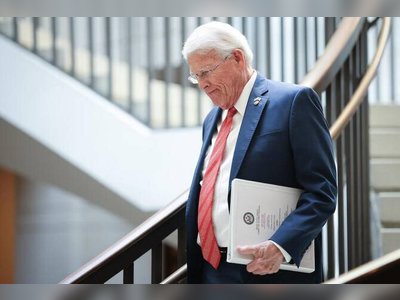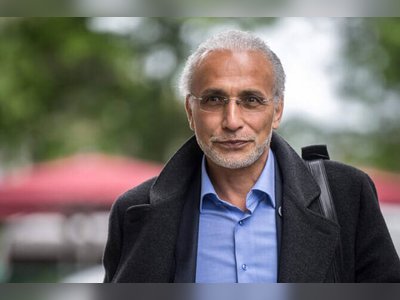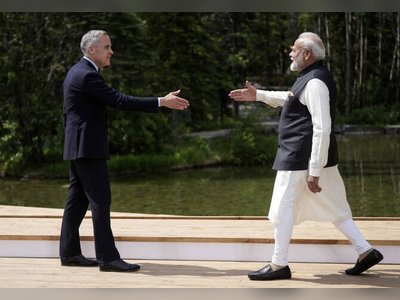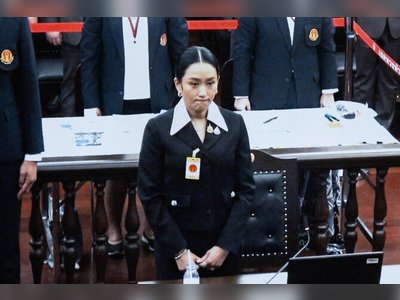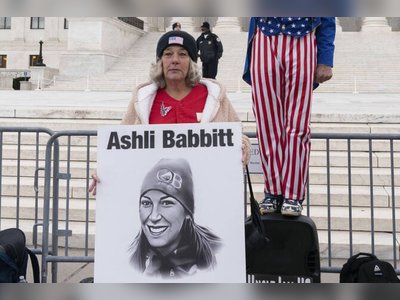
CDC Leadership Crisis: New Acting Director Appointed Amid Turmoil
The Centers for Disease Control and Prevention faces turmoil as the White House replaces its director with a former investment executive.
In a move that has triggered rare bipartisan concern, the White House has initiated changes in the leadership of the Centers for Disease Control and Prevention (CDC).
Jim O'Neill, a former official at the Department of Health and Human Services under President George W.
Bush, is set to replace Susan Monarez, a longtime government scientist.
The decision comes amid tensions surrounding anti-vaccine policies promoted by Health Secretary Robert F.
Kennedy Jr., which are in contradiction with established scientific research.
The change in leadership has prompted two Republican senators to call for congressional oversight, and some Democrats have suggested that Kennedy should be fired.
O'Neill does not have a medical background, raising concerns about the agency's future direction.
The appointment of a new director comes at a critical time as an advisory committee reshaped with vaccine skeptics prepares to issue new recommendations on immunizations.
The turmoil within the CDC began with the administration’s announcement that Monarez would no longer lead the agency.
In response, three senior officials resigned, including Dr. Debra Houry, Dr. Demeter Daskalakis, and Dr. Daniel Jernigan.
These departures have sparked fears among public health experts that scientific integrity may be compromised.
Kennedy has not explained the reasons behind Monarez's dismissal but hinted at further changes within the agency.
The departure of Monarez stands to become the shortest tenure for a CDC director since its inception in 1946, exacerbating an ongoing leadership vacuum that began under President Trump's administration.
The controversy surrounding the CDC's leadership has also raised concerns about vaccine recommendations and policy decisions.
Kennedy has been a prominent figure in the anti-vaccine movement, and his recent dismissal of the entire advisory committee on immunization practices has drawn criticism from both political parties and medical organizations.
The upcoming meeting of the reconstituted committee has sparked further demands for oversight and scrutiny of its processes.
Public health experts and leaders have expressed their concerns about the potential implications of these changes, emphasizing the importance of maintaining scientific integrity within public health agencies.
As the situation unfolds, it remains to be seen how these developments will impact public health policy and the agency's ability to respond effectively to future health crises.
Jim O'Neill, a former official at the Department of Health and Human Services under President George W.
Bush, is set to replace Susan Monarez, a longtime government scientist.
The decision comes amid tensions surrounding anti-vaccine policies promoted by Health Secretary Robert F.
Kennedy Jr., which are in contradiction with established scientific research.
The change in leadership has prompted two Republican senators to call for congressional oversight, and some Democrats have suggested that Kennedy should be fired.
O'Neill does not have a medical background, raising concerns about the agency's future direction.
The appointment of a new director comes at a critical time as an advisory committee reshaped with vaccine skeptics prepares to issue new recommendations on immunizations.
The turmoil within the CDC began with the administration’s announcement that Monarez would no longer lead the agency.
In response, three senior officials resigned, including Dr. Debra Houry, Dr. Demeter Daskalakis, and Dr. Daniel Jernigan.
These departures have sparked fears among public health experts that scientific integrity may be compromised.
Kennedy has not explained the reasons behind Monarez's dismissal but hinted at further changes within the agency.
The departure of Monarez stands to become the shortest tenure for a CDC director since its inception in 1946, exacerbating an ongoing leadership vacuum that began under President Trump's administration.
The controversy surrounding the CDC's leadership has also raised concerns about vaccine recommendations and policy decisions.
Kennedy has been a prominent figure in the anti-vaccine movement, and his recent dismissal of the entire advisory committee on immunization practices has drawn criticism from both political parties and medical organizations.
The upcoming meeting of the reconstituted committee has sparked further demands for oversight and scrutiny of its processes.
Public health experts and leaders have expressed their concerns about the potential implications of these changes, emphasizing the importance of maintaining scientific integrity within public health agencies.
As the situation unfolds, it remains to be seen how these developments will impact public health policy and the agency's ability to respond effectively to future health crises.


